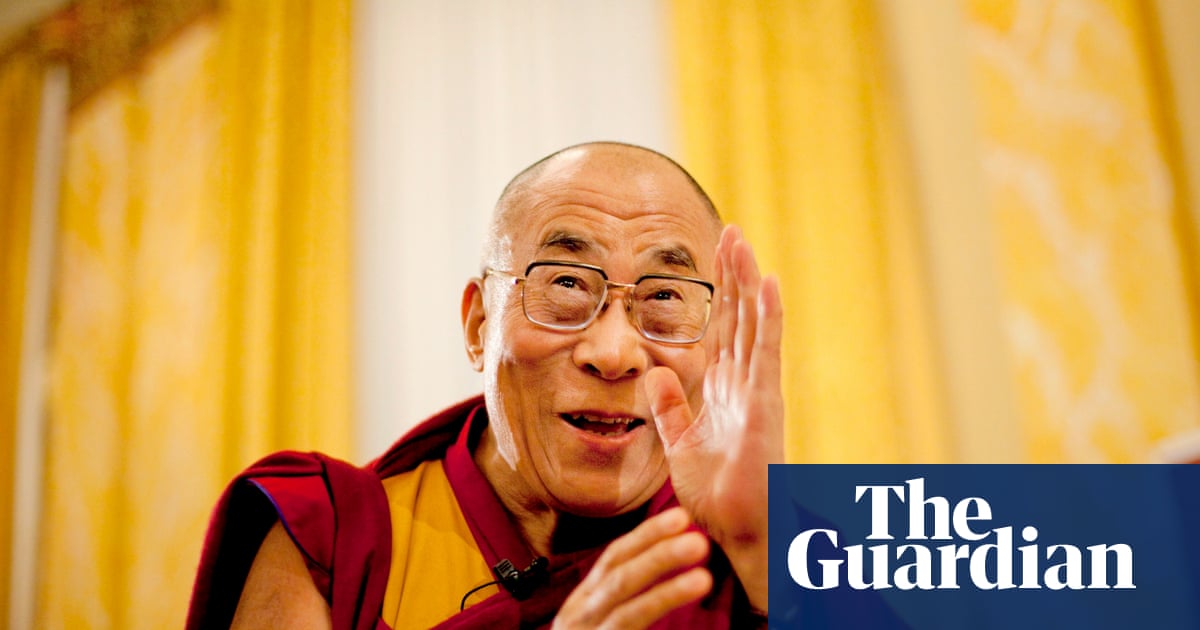- Get link
- X
- Other Apps
- Get link
- X
- Other Apps

Buddhist Rebirth v Chinese Control: The Battle to Choose the Dalai Lama’s Successor
As the hills of Dharamshala gear up for the Dalai Lama’s 90th birthday celebrations, a palpable sense of anticipation hangs in the air. This year's celebration isn't just about marking a milestone; it's intertwined with critical decisions about the future of Tibetan Buddhism and the succession of its spiritual leader.
For years, the Dalai Lama has hinted at a significant announcement regarding his reincarnation around his 90th birthday. That moment arrived on Wednesday, with a video broadcast outlining the process for choosing his successor. This announcement comes amidst a long-standing power struggle between the Tibetan community and the Chinese government, both vying for control over the prestigious institution of the Dalai Lama.
The Dalai Lama's Declaration: Continuity and Control
Tenzin Gyatso, the 14th Dalai Lama, has affirmed that he will remain in his role until his passing. Following centuries-old tradition, he will be reincarnated. Crucially, he stated that only his inner circle – a trusted group of monks – will have the "sole authority" to locate his successor. This process, often lengthy, involves identifying a child in whom his spirit has been reborn.
"No one else has any such authority to interfere in this matter," the Dalai Lama emphasized, clearly addressing the Chinese government's ambitions.
Defying Expectations and Asserting Independence
This announcement puts to rest speculation that the Dalai Lama might pursue alternative modes of reincarnation to preempt Chinese interference, such as transferring his spiritual essence to a successor while still alive. He had even suggested the possibility of not reincarnating at all, a notion that caused considerable concern among the Tibetan diaspora.
The Dalai Lama's recent statement is a direct challenge to the Chinese Communist Party, which has long asserted its authority to determine the next Dalai Lama, a right even enshrined in Chinese law.
A Diplomatic Approach?
Tansen Sen, a scholar specializing in Indo-Chinese relations and Buddhism, observed a more diplomatic tone in the Dalai Lama’s message compared to previous statements. While he had previously indicated that the 15th Dalai Lama would be born in the "free world," suggesting outside China, he did not reiterate this point this time.
"I see this as a very strategically handled announcement which avoided ruffling China’s feathers too much," Sen stated, highlighting the Dalai Lama's awareness of the complex geopolitical landscape between India and China.
China's Response: Censorship and Control
The sensitivity of the issue in China is evident in the absence of the Dalai Lama's announcement from Chinese and Tibetan media. Robert Barnett, a scholar of Tibetan history at SOAS University of London, noted that "China’s propaganda managers seem very reticent for this news to reach Tibetans or even Chinese." This reluctance likely stems from fears of widespread support for the Dalai Lama or internal disagreements on how to respond.
Historical Context: China's Occupation and the Dalai Lama's Exile
China invaded and seized control of Tibet in 1950. Following a failed Tibetan uprising in 1959, the Dalai Lama, fearing arrest, fled to India. India, under Prime Minister Jawaharlal Nehru, granted him asylum, allowing him to live in peace.
Since then, Dharamshala has become the headquarters for the Tibetan government-in-exile and a center for Tibetan religious and cultural life.
The Dalai Lama: A Global Advocate
From Dharamshala, the Dalai Lama has been a tireless advocate for the Tibetan cause and community, resisting Chinese interference in the selection of his successor.
Within Tibet, Chinese authorities have implemented increasingly restrictive measures to suppress the Dalai Lama's influence, including banning his images. Beijing views him as a separatist, despite his calls for greater Tibetan autonomy within China, not full independence.
China's Strategy: Two Successors?
China's efforts to undermine the Dalai Lama's influence have largely failed. As his international profile has grown, China remains determined to control what happens after his death.
Following the Dalai Lama's recent announcement, a Chinese foreign ministry spokesperson stated that his successor "must be chosen by drawing lots from a golden urn and approved by the central government."
Analysts predict a scenario where two successors are appointed: one by Tibetan monks outside China, recognized by the Tibetan community in exile, and another selected by the Chinese Communist Party from within China.
India's Evolving Stance
The Dalai Lama's presence in Dharamshala has been a persistent source of tension in Indo-Chinese relations. However, since 2020, India has seemingly begun to view the Tibet issue as leverage against China. India's minister of minority affairs, Kiren Rijiju, publicly stated that the reincarnation of the Dalai Lama "is to be decided by the established convention and as per the wish of the Dalai Lama himself. Nobody else has the right to decide it except him." China has warned against any interference, directing the message towards India.
Amitabh Mathur, a former advisor on Tibet to the Indian government, suggests that Rijiju's statement would not have been made without consulting senior ministries. He anticipates increasing geopolitical complications after the Dalai Lama's death, especially if the reincarnation is located inside India.
The Dalai Lama's Optimism
Tibetan officials have confirmed that unofficial channels with the Chinese remain open, and the Dalai Lama is actively working to prevent the hijacking of the Tibetan Buddhist institution. As he led prayers on the eve of his birthday, the Dalai Lama, appearing in good health, expressed his hope to "live another 30 or 40 years."
This enduring struggle underscores the complexities of religious freedom, political autonomy, and geopolitical maneuvering. The future of the Dalai Lama's lineage, and indeed Tibetan Buddhism itself, hangs in the balance.
Tags: Dalai Lama, reincarnation, Tibetan Buddhism, Tenzin Gyatso, Dharamshala, successor, 90th birthday, Tibetan monks, Chinese government, announcement
Source: https://www.theguardian.com/world/2025/jul/05/buddhist-rebirth-v-chinese-control-the-battle-to-choose-the-dalai-lamas-successor
90th birthday
announcement
Chinese government
Dalai Lama
Dharamshala
reincarnation
successor
Tenzin Gyatso
Tibetan Buddhism
Tibetan monks
- Get link
- X
- Other Apps
Comments
Post a Comment